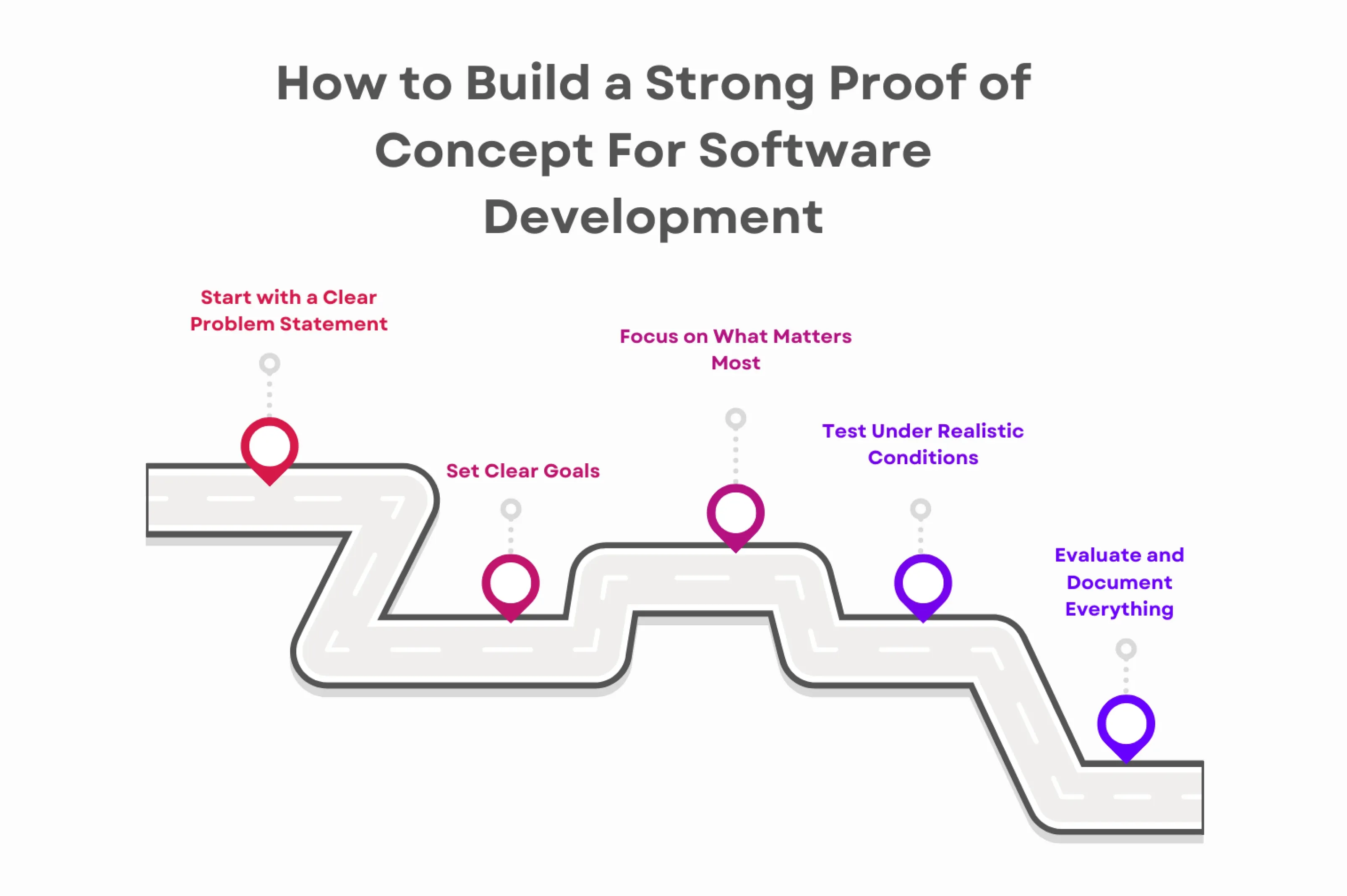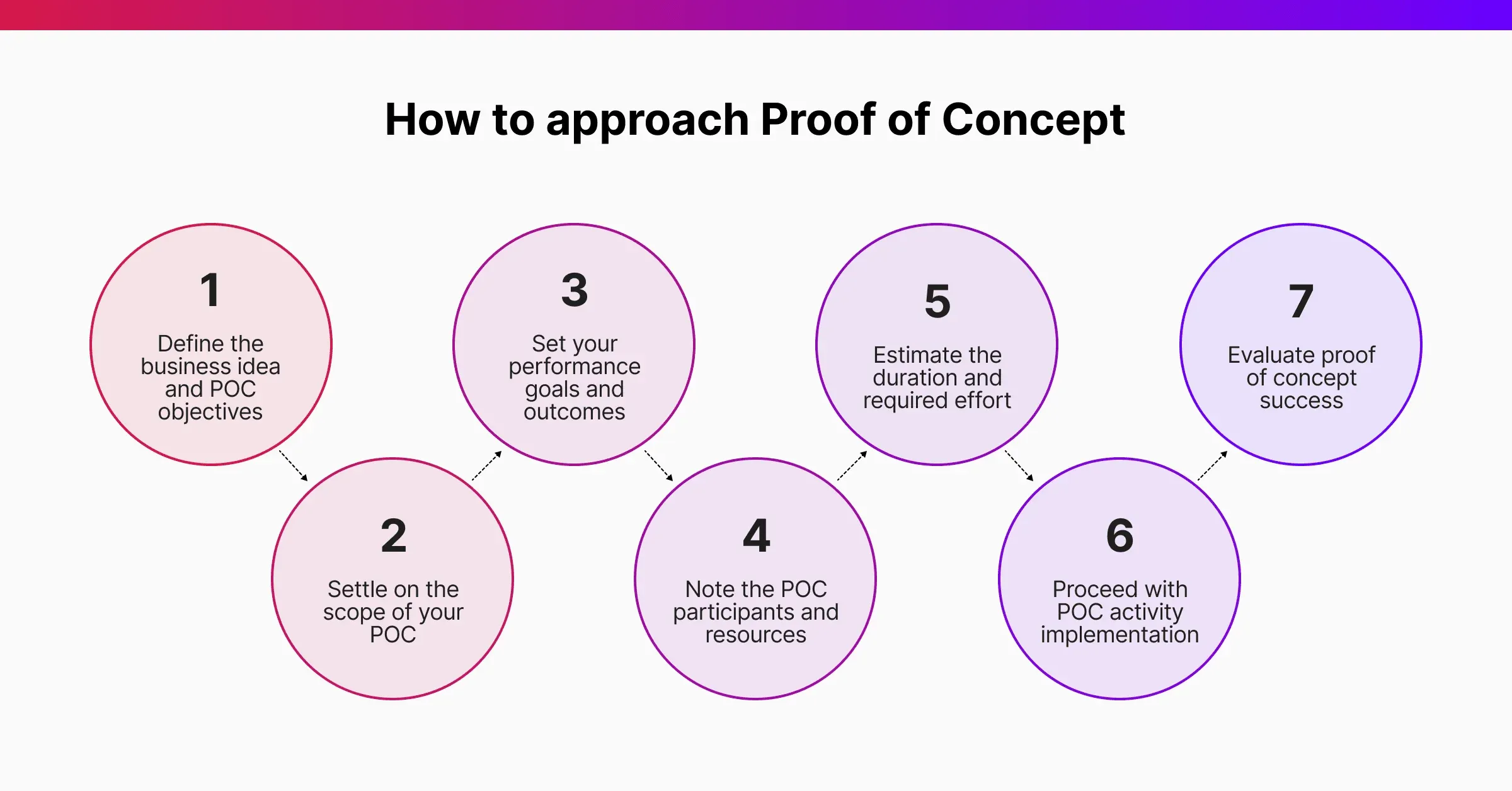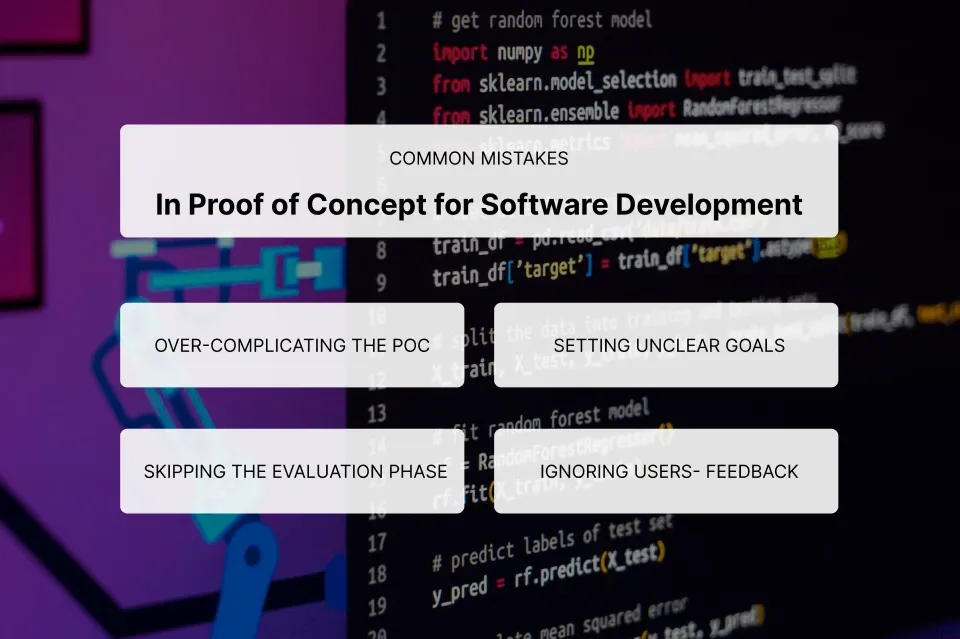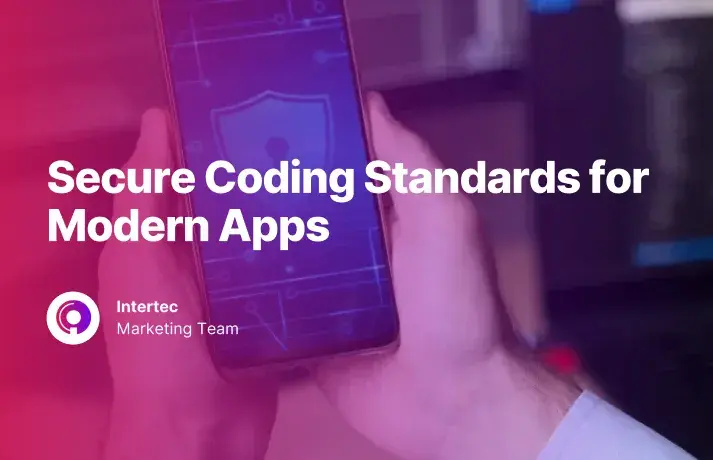What is a Proof of Concept (PoC) in Software Development?
Let’s start by understanding what a proof of concept for software development is, to set a clear foundation before exploring why a strong PoC is so essential.
In simple terms, a PoC is a small-scale experiment designed to answer a question: Can this idea work in the real world?
While a prototype gives an idea of what the product might look like, a PoC is all about making sure the idea can actually work. It is less about appearance and user experience and more about practicality and function. A PoC checks if your idea is technically possible—can it be built the way you plan?
Think of it as an early check to spot technical issues before they become bigger problems. You are not building full features or perfecting user flows, you are focusing on the basics, spotting any technical issues that could slow down the project later. For projects that involve new technologies, complex integrations, or intricate workflows, a PoC is key. It gives you confidence that the core idea works, setting up the project for success.
Why Does a Strong PoC Matter?
With a clear picture of what a PoC is, let’s explore why having a strong PoC is so important for software project success.
A strong PoC does not just prove that an idea could work—it demonstrates that it can perform effectively under real-life conditions. While a basic PoC checks if something is technically possible, a strong PoC goes further by testing how it holds up when facing the demands it will meet in the real world, like lots of users or complex integrations.
Strong PoC gives you confidence that your idea is not just possible, it is solid and ready to hold what is coming. By spotting potential issues early, you save time and resources, building a strong foundation for success.
Here is how it differs from a basic proof of concept for software development:
Depth of Validation: A basic PoC simply shows that an idea can work. A strong PoC goes further, confirming not just that it works, but that it performs effectively under realistic, practical conditions.
Risk Management: A basic PoC usually just checks if the idea works, often missing some risks. A strong PoC, on the other hand, addresses those risks right from the start. It tests the idea in real-life-like conditions to catch any hidden issues before they become big problems.
Coverage and Detail: A basic PoC might only test one main function, giving a limited view of how the idea could work. A strong PoC, however, looks at a range of factors, like working well with other systems, and meeting resource needs—making sure the project can actually meet real demands.
Quality of Insights: Basic PoC provides a simple “yes” or “no” on whether the concept is possible. Strong PoC, generates richer insights, offering clear, actionable feedback that helps refine the project’s technical and business approach before moving forward.
Resource Efficiency: A strong PoC is built to provide useful insights without wasting resources. It offers a clear path forward, helping you stay on budget and on schedule while effectively validating the concept.










